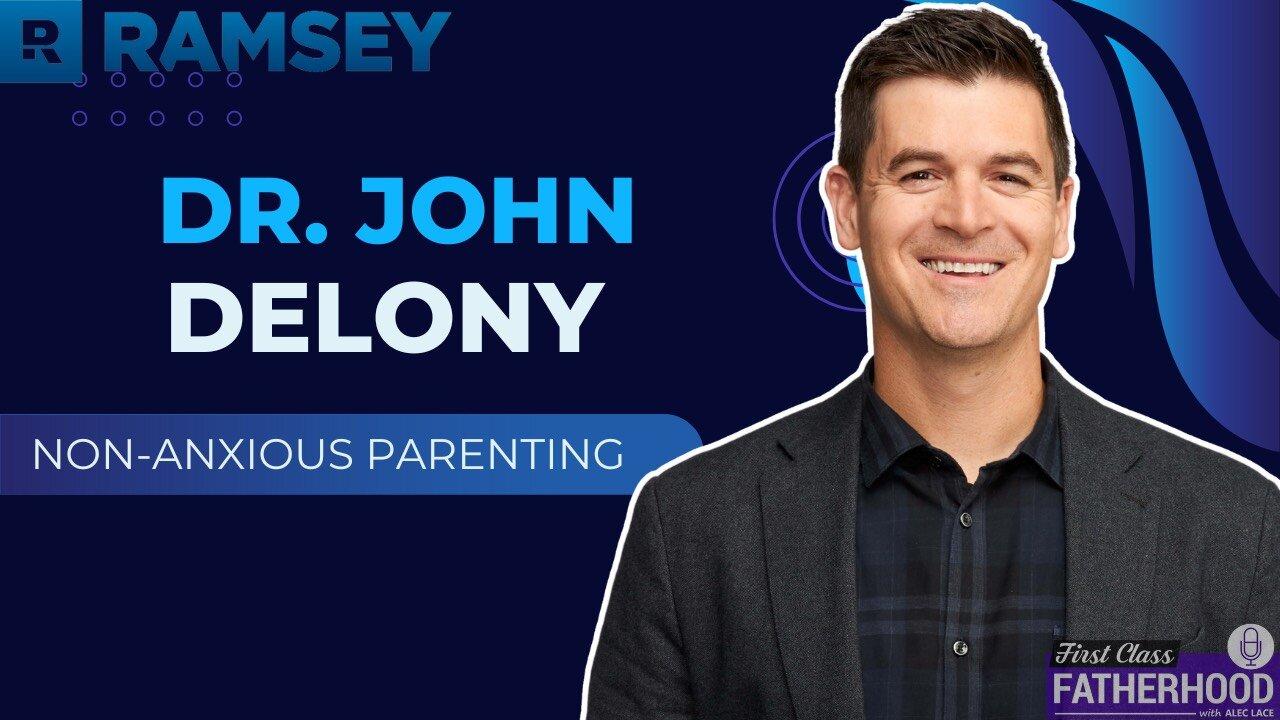Addressing The Loneliness Epidemic: Key Takeaways From Dr. John Delony's CNN Interview

Table of Contents
The Scope of the Loneliness Epidemic and its Impact
Dr. Delony highlighted the staggering statistics surrounding loneliness, its prevalence across age groups, and its devastating effects on mental and physical well-being. The loneliness epidemic isn't just a feeling; it's a serious public health crisis with far-reaching consequences. He emphasized that loneliness is not simply a matter of being alone; it's a subjective experience of isolation and lack of connection.
- Increased risk of heart disease, stroke, and dementia: Studies have shown a strong correlation between loneliness and an increased risk of developing cardiovascular diseases and cognitive decline. The chronic stress associated with social isolation can significantly impact physical health.
- Higher rates of depression, anxiety, and suicide: Loneliness is a major risk factor for mental health issues. The feeling of being disconnected and unsupported can exacerbate existing mental health conditions or trigger new ones. This increased risk extends to suicidal thoughts and behaviors.
- Weakened immune system and slower recovery from illness: Social isolation negatively affects the immune system, making individuals more susceptible to illness and slowing down their recovery time. Strong social connections, conversely, can boost immunity.
- Negative impact on cognitive function and memory: Chronic loneliness can impair cognitive function and lead to memory problems. This is partly due to the increased stress and inflammation associated with social isolation.
- Increased feelings of hopelessness and isolation: The cycle of loneliness often perpetuates itself. Feeling isolated can lead to further withdrawal, reinforcing the sense of hopelessness and deepening the experience of loneliness.
- The disproportionate effect on elderly populations and marginalized communities: Older adults and marginalized communities are particularly vulnerable to social isolation and loneliness, often due to limited access to social support networks and resources.
Identifying the Root Causes of Loneliness
Dr. Delony discussed the multifaceted nature of loneliness, examining various factors contributing to its rise. He emphasized that understanding these root causes is crucial to developing effective interventions.
- Increased screen time and decreased face-to-face interaction: The rise of technology, while offering benefits, has also contributed to a decline in face-to-face interactions, which are essential for building strong social connections. Spending excessive time online can lead to feelings of isolation and social comparison.
- The decline of community engagement and social support networks: The weakening of traditional community structures and social support systems has left many individuals feeling isolated and disconnected. This decline can be attributed to various factors, including urbanization and changing lifestyles.
- The impact of societal changes and urbanization: Rapid societal changes and the increasing pace of life in urban environments can make it more challenging to build and maintain meaningful relationships. The anonymity of urban life can contribute to feelings of isolation.
- Mental health conditions contributing to social withdrawal: Certain mental health conditions, such as depression and anxiety, can lead to social withdrawal and exacerbate feelings of loneliness. Addressing these underlying conditions is essential in combating loneliness.
- The stigma associated with admitting feelings of loneliness: Many individuals hesitate to admit feelings of loneliness due to the stigma associated with it. This silence prevents them from seeking help and support, perpetuating the cycle of isolation.
Practical Strategies to Combat Loneliness – Dr. Delony's Recommendations
The interview offered tangible steps individuals can take to address loneliness and build stronger social connections. Dr. Delony stressed the importance of proactive measures to combat loneliness.
- Prioritizing face-to-face interactions and limiting screen time: Consciously reducing screen time and prioritizing in-person interactions can significantly improve social connections and reduce feelings of loneliness. Meaningful face-to-face conversations are crucial.
- Joining community groups, clubs, or volunteering opportunities: Engaging in community activities provides opportunities to meet new people, build relationships, and develop a sense of belonging. Volunteering is especially beneficial, offering a sense of purpose and connection.
- Engaging in activities that foster a sense of purpose and belonging: Pursuing hobbies, interests, and activities that provide a sense of purpose and belonging can significantly combat loneliness. These activities can foster connections with like-minded individuals.
- Seeking professional help for underlying mental health conditions: If loneliness is accompanied by other mental health issues, seeking professional help is crucial. Therapy and other mental health services can provide support and guidance in addressing these conditions.
- Practicing active listening and empathy in relationships: Cultivating strong relationships requires active listening and empathy. These skills help build trust and deepen connections, reducing feelings of isolation.
- Reaching out to friends, family, and neighbors: Taking the initiative to connect with others, even in small ways, can make a significant difference. A simple phone call or visit can combat feelings of isolation.
The Role of Technology in Addressing the Loneliness Epidemic
Dr. Delony addressed the complex relationship between technology and loneliness, discussing both its negative and positive aspects. Technology can be both a contributor to and a solution for loneliness.
- The potential of technology to connect individuals across geographical boundaries: Technology can connect individuals across distances, allowing them to maintain relationships with loved ones and build new connections with people who share their interests. Online communities can offer support and a sense of belonging.
- The risk of increased social comparison and feelings of inadequacy through social media: Social media can contribute to feelings of inadequacy and social comparison, potentially exacerbating feelings of loneliness. Mindful social media use is essential.
- The importance of mindful technology use and prioritizing real-life interactions: While technology can be beneficial, it's crucial to use it mindfully and prioritize real-life interactions. A balance between online and offline connections is key.
- Exploring online support groups and communities for individuals struggling with loneliness: Online support groups can offer a safe space for individuals struggling with loneliness to connect with others and share their experiences. These communities can provide valuable support and a sense of belonging.
Conclusion
Dr. Delony’s CNN interview provided crucial insights into the devastating effects of the loneliness epidemic and offered practical strategies to combat this growing public health concern. By understanding the root causes of loneliness and implementing the recommended strategies, we can collectively work towards creating more connected and supportive communities. Remember, addressing the loneliness epidemic is a shared responsibility. Take the first step today towards building stronger connections and combating loneliness in your life and the lives of others.

Featured Posts
-
 Reduced Apple Harvest Predicted Impact Of Rosy Apple Aphid Infestation
May 19, 2025
Reduced Apple Harvest Predicted Impact Of Rosy Apple Aphid Infestation
May 19, 2025 -
 Lipscombs Ncaa Tournament Journey Past Performance And Predictions
May 19, 2025
Lipscombs Ncaa Tournament Journey Past Performance And Predictions
May 19, 2025 -
 New Photos Jennifer Lawrence And Cooke Maroney Following Second Baby News
May 19, 2025
New Photos Jennifer Lawrence And Cooke Maroney Following Second Baby News
May 19, 2025 -
 Boyleyma Symvoylioy Efeton Dodekanisoy 210 Enorkoi Sto Mikto Orkoto Efeteio
May 19, 2025
Boyleyma Symvoylioy Efeton Dodekanisoy 210 Enorkoi Sto Mikto Orkoto Efeteio
May 19, 2025 -
 Gilbert Burns Ruthless Knockout Victory At Ufc Vegas 106 Morales Demise And The Implications
May 19, 2025
Gilbert Burns Ruthless Knockout Victory At Ufc Vegas 106 Morales Demise And The Implications
May 19, 2025
